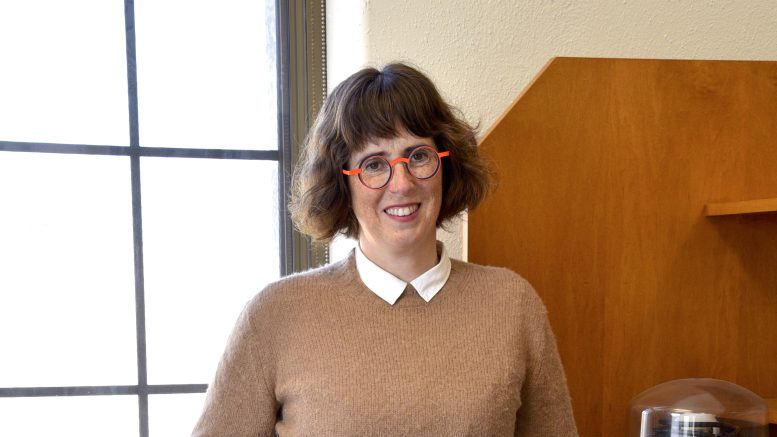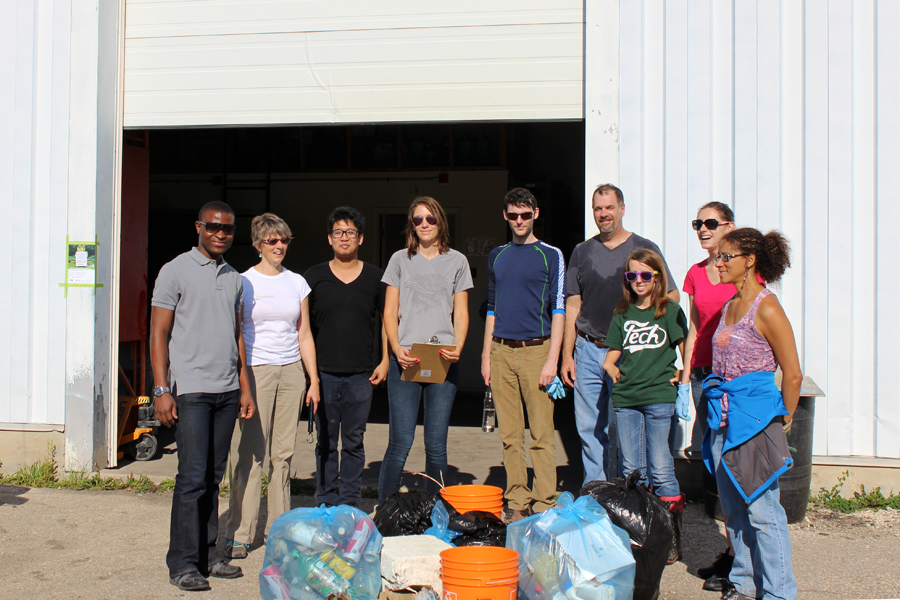The U of M has secured a $2.5 million grant from the Natural Sciences and Engineering Research Council (NSERC) and Social Sciences and Humanities Research Council (SSHRC) Alliance Grant program. This funding will enable Dr. Olivia Wilkins, an associate professor of biological sciences, to lead the Canadian team for the Global Centre for Plant Innovation and Resilience through International Teamwork (C-SPIRIT).
The Global Centres program marks the first international initiative of its kind, launched by the National Science Foundation (NSF) last year.
Wilkins stated that the NSF initiated this project as part of its international collaborations to tackle grand challenges. She explained that the centre, C-SPIRIT, aims to address the challenge of food security and supply amid climate change for a growing population.
She revealed that agencies from the U.S., Canada, the Republic of Korea, Japan and the U.K. are jointly funding this project, totaling a $16.3 million U.S. dollar grant. The Canadian portion from the NSERC and SSHRC will specifically support the work of Canadian participants in the program.
Wilkins expressed anticipation for the program’s support of graduate students and postdoctoral researchers through an exchange program. “We anticipate having graduate students from Japan coming to Canada, for example, and likewise having grad students from Canada going and spending up to six months,” she said.
“I think another real benefit of the international collaboration is that […] we are able to play on each other’s strengths. And so, for example, there are real strengths in the chemical synthesis in the U.K. that we will be able to draw on,” she added.
She clarified that the centre is not a physical structure but operates as a diffuse centre, focused on the tasks currently underway and directed by Michigan State University. She also hopes the U of M will establish itself as a lasting pillar of the centre, aiming to attract graduate students and researchers at various levels to contribute to this and related projects over time.
Speaking about the expertise that Canada and the U of M brings to this project, Wilkins stated that they will contribute expertise in computational biology to the project. “Computational biology, you know, if I sort of describe it in the most general of terms, in the way that we do it, is that we do a lot of math about cells,” said Wilkins.
“We do this because we’re interested in understanding how cells use the information in their genomes to be able to respond to different stimuli and Canada has got tremendous strength in this area.”
In addition, Wilkins noted that Canada contributes expertise in using machine learning to predict the functions of various biomolecules, and Canadian researchers on the team also bring strengths in outreach to farmers, an essential aspect of the project. “I think those are three areas that we are bringing to this challenge. I think Canada obviously has been an agricultural powerhouse for a very long time,” Wilkins added.
Dr. Seung Yon (Sue) Rhee serves as the director of the Plant Resilience Institute at Michigan State University and leads this project. The Canadian team includes Wilkins, Dr. Nicholas Provart from the University of Toronto, Dr. David Wishart from the University of Alberta, Dr. Robert Britton from Simon Fraser University and Dr. Ataharul Chowdhury from the University of Guelph. Outside of Canada, other collaborators include Dr. Nicola Patron from the University of Cambridge in the U.K. and Dr. Motoaki Seki in Japan at RIKEN Center for Sustainable Resource Science.
Wilkins outlined key outcomes that she aims to achieve through this project. The first ongoing goal is to discover and characterize metabolites. She expects the team to uncover how plants regulate the production of these molecules and identify the limits of production, including why plants only produce them at certain times and in specific quantities. The team will focus on high-priority metabolites and apply them to agricultural field conditions to evaluate their impact on productivity.
“The ability to attract a great team, and I have wonderful grad students in the lab — and I’m always recruiting more — it really adds a lot of power,” she emphasized.
“Being part of the process of building this international team is something to which I’m deeply committed [to], in addition to the work of the science itself. So, I think that’s one thing that perhaps I bring that is a bit unique,” Wilkins added.
Dr. Mario Pinto, U of M vice-president (research and international), expressed the U of M’s commitment to this research in UM Today, stating, “UM is excited to play a key role in this global initiative investing in the power of the bioeconomy to solve the biggest challenges in agriculture.”
“UM is a leader in research in water and food security and I am grateful for the NSERC’s support for Dr. Wilkins as she leads the Canadian team in their important research contributions to the Global Centres,” stated Pinto.





